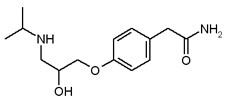
PEAR Team
Pharmacogenomic Evaluation of Antihypertensive Responses
Hypertension (HTN) is the most common chronic disease for which drugs are prescribed, and the most prevalent risk factor for heart attack, stroke, renal failure and heart failure. Responses to antihypertensive drug therapy exhibit considerable interpatient variability, contributing to poor rates of HTN control (currently 40% in the US), and frequent nonadherence and dropout from therapy.This project is directed toward the long-term goal of selection of antihypertensive drug therapy based on a patient's genetic make-up. We propose to identify genetic predictors of the antihypertensive and adverse metabolic responses to two preferred and pharmacodynamically contrasting drugs, a beta blocker (atenolol) and a thiazide diuretic (HCTZ) given initially as monotherapy, and subsequently in combination, to 800 individuals with uncomplicated hypertension. High quality phenotype data, including both home and ambulatory measures of blood pressure (BP) response, and lipid, glucose, and uric acid measures of adverse metabolic responses.
The PEAR team is willing to accept proposals for research collaboration from external investigators. PEAR data that are or will be available include genotype data from the Illumina Human 50K CVD array, the Illumina 1M Duo genome-wide SNP array, and phenotype data generated during the PEAR trial (see PMID 19249413 for details). Biological resources that are available include DNA, plasma, urine, and RNA (on selected subjects) from each major study visit, along with EBV-transformed lymphoblastoid cell lines, created on each patient at the end of their monotherapy period. Investigators interested in proposing a PEAR ancillary study should review the PEAR ancillary study guidelines and application form, and contact one of the PEAR investigators.



